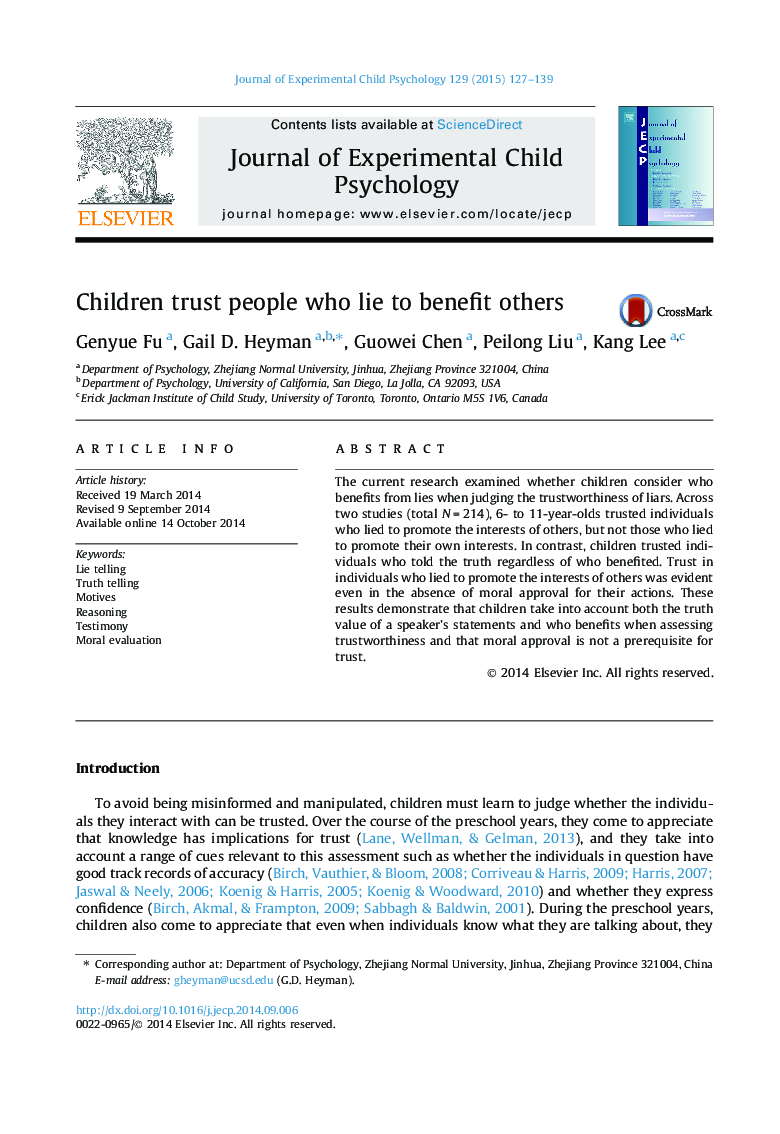| Article ID | Journal | Published Year | Pages | File Type |
|---|---|---|---|---|
| 918037 | Journal of Experimental Child Psychology | 2015 | 13 Pages |
•We examined trust judgments in middle childhood.•We compared the implications of statements to benefit self versus others.•Which person benefits was considered when judging lie-tellers but not truth-tellers.•Children trusted people who lied to benefit others, without approving of those lies.
The current research examined whether children consider who benefits from lies when judging the trustworthiness of liars. Across two studies (total N = 214), 6- to 11-year-olds trusted individuals who lied to promote the interests of others, but not those who lied to promote their own interests. In contrast, children trusted individuals who told the truth regardless of who benefited. Trust in individuals who lied to promote the interests of others was evident even in the absence of moral approval for their actions. These results demonstrate that children take into account both the truth value of a speaker’s statements and who benefits when assessing trustworthiness and that moral approval is not a prerequisite for trust.
